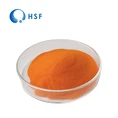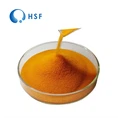Natural vitamin K comes in two main forms: vitamin K1 and K2. Phylloquinone (K1) is mainly found in green leafy vegetables and plays a role in blood clotting. And menaquinone (K2), which is primarily produced by the gut microbiota, is essential for healthy arteries and bones. But the same is that they are both absorbed by the small intestine.

Vitamin K1 for blood clotting
In the process of blood clotting, there is an important protein called Prothrombin. Vitamin K1 is responsible for activating prothrombin for blood clotting. Phylloquinone is vital to the circulatory system: without it, the liver cannot produce the molecules that ensure blood clotting. Severe K1 deficiency can lead to bleeding risk. By contrast, some anticoagulant treatments are vitamin K antagonists—they work by reducing their blood clotting effects.
Vitamin K1 is in green vegetables,such as spinach, cabbage, lettuce, broccoli, and soybean and canola oils.
Vitamin K2 for Bone and Heart Health
Vitamin K2 activates the matrix GLA protein and osteocalcin, two proteins that promote calcium binding and bone metabolism, thereby helping to build and maintain normal bones. People who ate more foods rich in vitamin K2 had stronger bones and were less likely to suffer from hip fractures. In addition, vitamin K2 supplementation also reduces bone loss and reduces the risk of fractures, slowing the rate of bone mineral density decline in postmenopausal women.
High intake of vitamin K2 supplements may reduce the risk of heart disease. It is known that one of the risk factors for heart disease is vascular calcification. Vascular calcification reduces the elasticity of blood vessels. Vitamin K is thought to help prevent the development of vascular calcification.





